All Stories
-
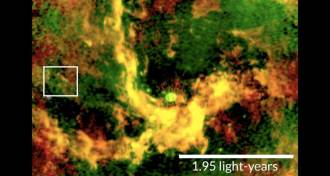 Astronomy
AstronomyConditions right for stars, planets near Milky Way’s supermassive black hole
Four clouds of gas near the galactic center have roughly the right mass to be young stars, possibly with planets.
-
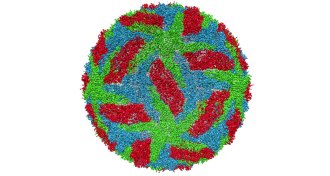 Health & Medicine
Health & MedicineRogue antibody linked to severe second dengue infections
Alternate antibody may indicate whether someone is susceptible to severe dengue disease.
-
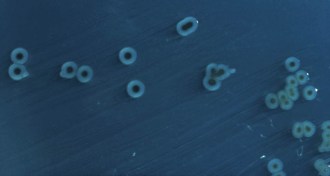 Life
LifeWhy salmonella doesn’t want you to poop out
Salmonella bacteria fight infection-driven losses in appetite to keep hosts just healthy enough for transmission.
-
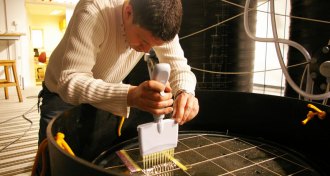 Oceans
OceansClimate change may boost toxic mercury levels in sea life
Increased runoff to the ocean due to climate change could raise neurotoxic mercury in coastal sea life by disrupting the base of the food web.
-
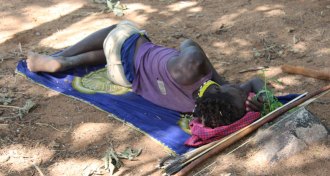 Anthropology
AnthropologySnooze patterns vary across cultures, opening eyes to evolution of sleep
Sleep plays out differently across cultures, but a consistent cycle of z’s and activity appears crucial.
By Bruce Bower -
 Science & Society
Science & SocietyTrump administration clampdowns on research agencies worry scientists
Mixture of bans on federal research communications create confusion and fear.
-
 Plants
PlantsBig genetics study blazes path for bringing back tomato flavor
Combining taste tests with genetics suggests what makes heirloom varieties tastier than mass-market tomatoes.
By Susan Milius -
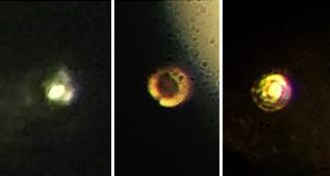 Physics
PhysicsNew claim staked for metallic hydrogen
Scientists report transforming hydrogen into a metal at high pressure, but some experts dispute the claim.
-
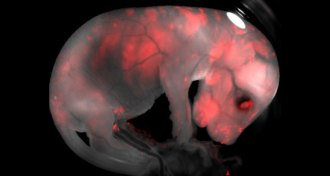 Life
LifeMouse cells grown in rats cure diabetes in mice
Mixing cells of two species produces pig and cattle embryos with some human cells.
-
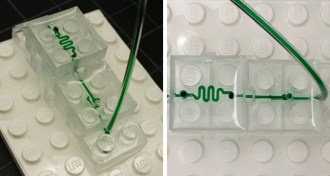 Tech
TechLegos inspire versatile fluid-filled devices
Tiny devices shuttle fluid around using reconfigurable Lego-like bricks.
-
 Physics
PhysicsConstruction of tiny, fluid-filled devices inspired by Legos
Tiny devices shuttle fluid around using reconfigurable Lego-like bricks.
-
 Health & Medicine
Health & Medicine50 years ago, methadone made a rosy debut
Heralded as the “answer to heroin addiction,” methadone is still used to treat opiate addiction, despite risks.